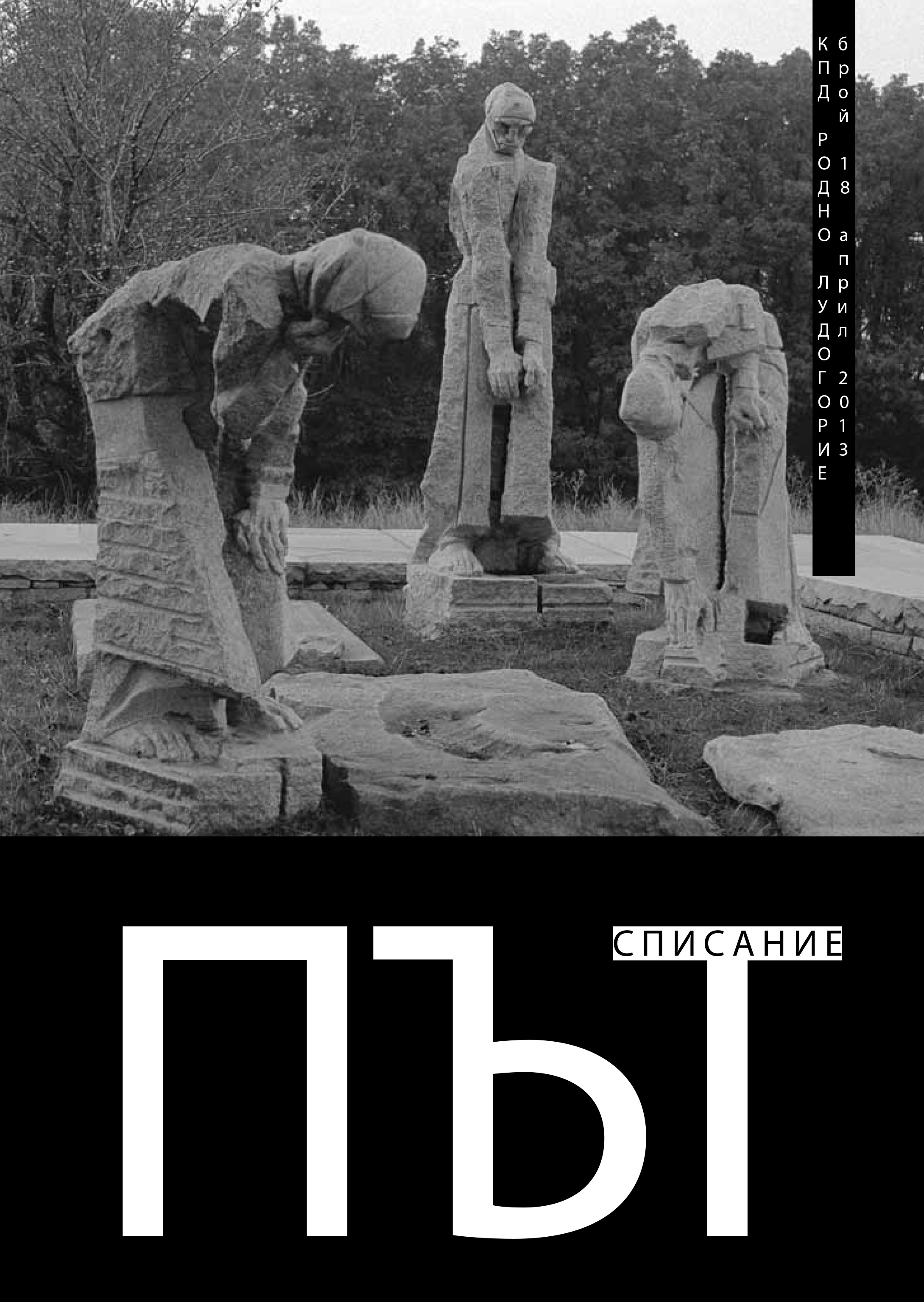
Батак - историко-живописни паралели и асоциации
The slaughter in Batak is one of the most controversial moments in Bulgarian history, but the guilt and the shame from this monstrous deed do not fall to the victims but to the executioners.
More...We kindly inform you that, as long as the subject affiliation of our 300.000+ articles is in progress, you might get unsufficient or no results on your third level or second level search. In this case, please broaden your search criteria.

The slaughter in Batak is one of the most controversial moments in Bulgarian history, but the guilt and the shame from this monstrous deed do not fall to the victims but to the executioners.
More...
The article presents the historical elements in the early works of the Slovak Paul Joseph Šafarik, well known for his Slavic studies. It starts with the educational background of the scientist, based on classical philology and literature and the influences he experienced in his youth, and then evaluates his first poetical attempts. The main analysis is centred on the first scientific work of Šafarik on Slavic literature, published in 1826 with special emphasis on its historical part.
More...
The research is devoted to the mythological and literary manipulations of history, closely related to the socio-political situation in Bulgaria following decisive events: the restoration of the statehood in 1878, the defeat during the First World War, the political Changes since 1944, continuing until 1989. The resulting "pre-thinking myths" reflect the lack of historical knowledge as well as the supreme subordination of ideological and political dogmas. At the same time, they play a major role in the formation of the modern Bulgarian community.
More...
This article examines the processes of construction of national identity in Plovdiv during the 1850s. The exposition is on two parallel lines. One traces the conflict and the degree of confrontation between Bulgarians and Greeks/grecomans in Plovdiv on a national basis in the field of enlightenment, everyday communication and church organization. The other line reveals the participation of Nayden Gerov ‒ a teacher (1850‒1853) and Russian consular agent in Plovdiv (after 1857) ‒ in the creation of Bulgarian national consciousness in the still subject to strong Greek influence city of Plovdiv. The argumentation of the thesis is made using a rich documentary material from the published and unpublished archive of Nayden Gerov.
More...
The article presents the influence of Hegel’s theory of ‘historical’ and ‘unhistorical’ nations on the Ukrainian movement in the 19th and 20th century. It reviews the concepts of M. Dragomanov, M. Grushevski, L. Tsegelski, I. Lysiak-Rudnicki, O. Pritsak, I. Reshetar.
More...
The author describes the rights and competences of the Ordinary and Grand National Assemblies, as defined by the Tarnovo Constitution from 1879. The author focuses on the relationship between Ordinary National Assembly and the prince institution; the rights and obligations of the Head of State for the establishment and dismissal of governments. Here are also described the possible variants in case of vote of non-confidence in the government by the parliament and the options for the Head of State. The author discusses the political practice in Bulgaria, electoral laws, voting rights for citizens, and the imposed restrictions. The place and role of the two types of Assembly in the Bulgarian political life are of high importance, as well is their ability to assert their independence in relation to the other institutions and the strong personalities of the day.
More...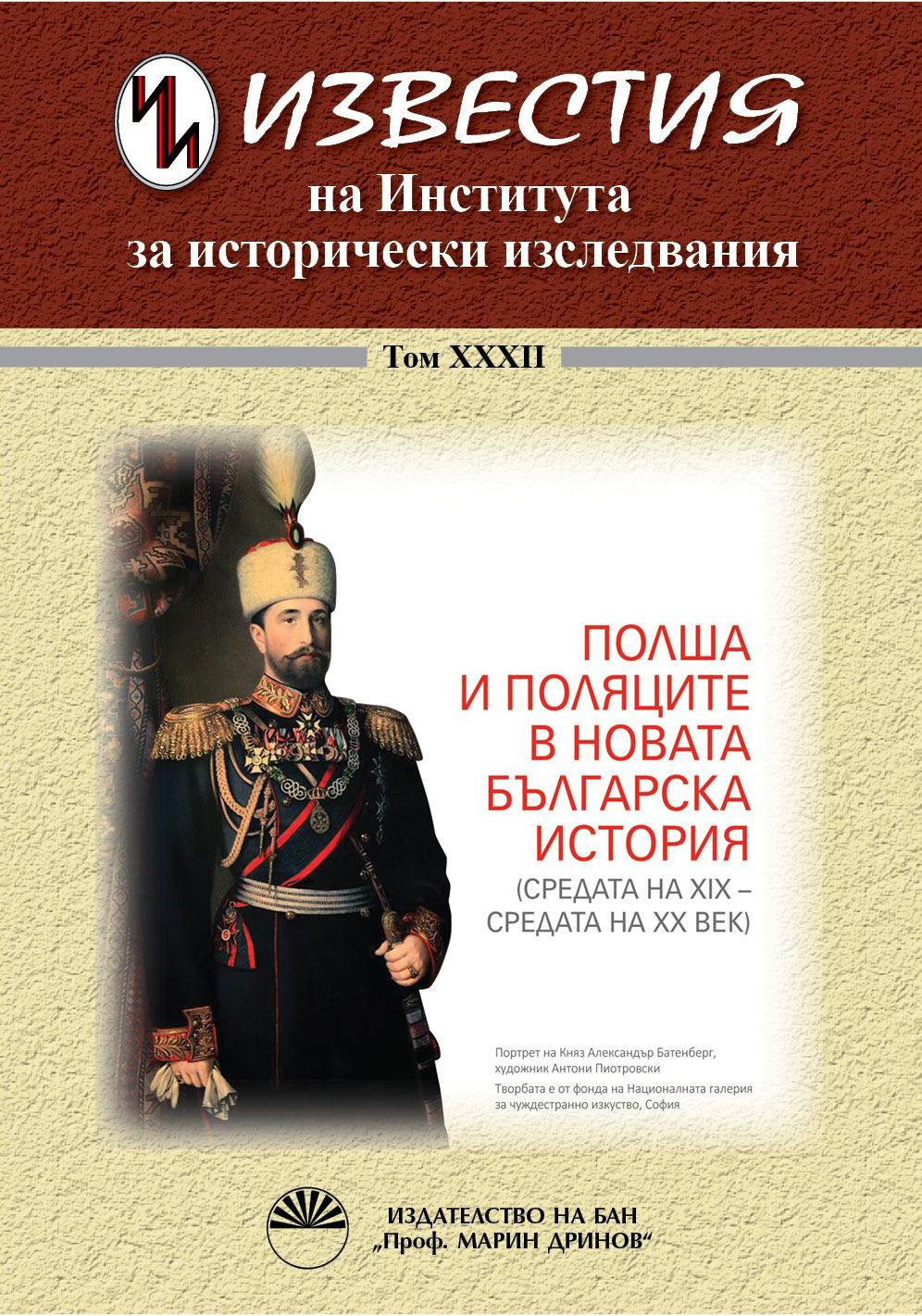
The paper deals with a little known in Bulgaria but reprinted in Europe text of the Polish émigré revolutionary Michał Czajka-Czajkowski (Sadyk Pasha) for his journey in 1861 in Eastern (Vardar) Macedonia, first published in the third edition of his novel Wernyhora, wieszcz ukraiński (1862). It contains travel notes about settlements of high significance for the Bulgarians, such as Enidzhe Vardar, Voden, Ostrov, Banitsa, Bitola, Prilep, Veles, from where Tchaikovsky continued his journey towards Skopje and Kosovo. This Balkan area with predominantly Bulgarian population is discussed by the active participant in the events on these lands in the second half of the 19th century amid a broad historical, political and cultural anthropological context. The narrative is accompanied by critical comments with references to European history and particularly to the history of the Poles. The politician in exile has managed to find parallels between the situation of the oppressed people in two empires – the Bulgarians who had lost their independence in the Ottoman Empire and his compatriots in the Russian Empire during the division of Poland between three countries.
More...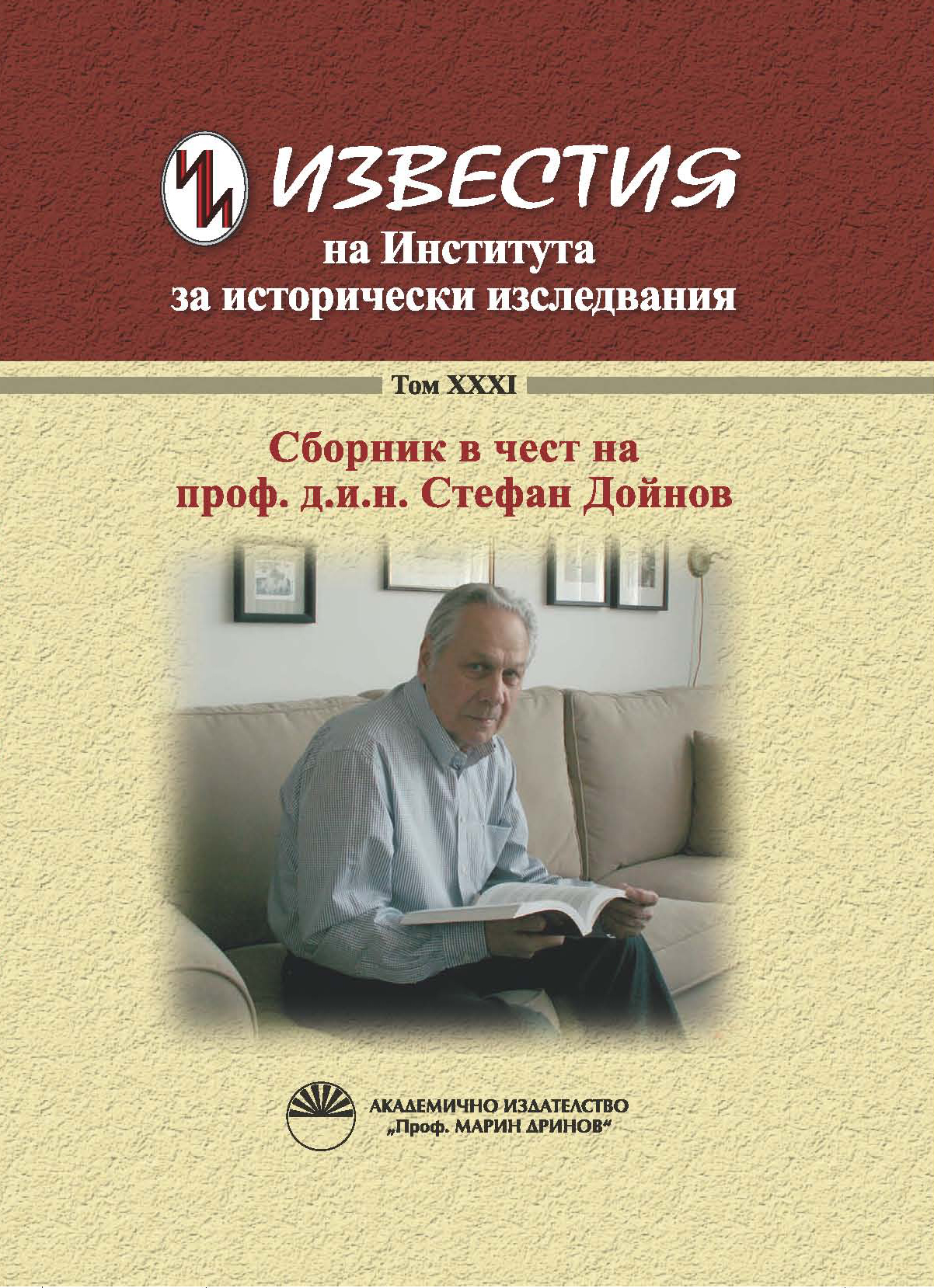
On the grounds of documental sources and memories of contemporaries the author investigates the different and contradictory attitudes of the main ethnicities, represented in Varna and Dobrudzha (Turks, Bulgarians, Greeks, Tatars, Wallachians), toward the European (chiefly French) soldiers and officers who used to sojourn in the region during the Crimean War (1853-1856). The similarly quite contradictory attitude of the French toward the local people has also been examined in the article. The French introduced to the native population the achievements of the modern civilization. Among them were the newest innovations in the area of the communications (the post, the telegraph), as well as the ideas of the Modern Age, which rejected all kinds of violence on the human personality, the injustice, the Oriental habits. Thus, the initial reticence of the local Christians toward the French gradually turned into sympathy. The Crimean War stimulated important processes in the Bulgaria’s revival society, in its economic, political and cultural development.
More...
The position of military engineers on the reconstruction fortresses Hodzhabey and Ochakov. A description of the towns and villages of Bulgarian Black Sea coast. Ethnographic notes of Bulgarian traditional culture in the 18th century.
More...
Extremely interesting, intriguing, exciting and eventful are Iliya Tsanov’s career and life path. He successively held a number of posts, like a clerk in the local Ottoman administration in Vidin, chairman of the Trade Court in Sofia, delegate of the Bulgarian National Parliament, minister of the foreign affairs in the Bulgarian government and last but not least, he was a defender of Botev’s chetniks (soldiers) in the Turkish Court. Iliya Tsanov was born in Vidin, but his life was strongly and deeply connected with Sofia, where he settled down in 1868. There Tsanov built up a reputation as an influential person and became a part of Sofia elite. The high status in the society allowed him to play a major role in the dispute around the Bishop throne in Sofia in 1872. The Bishop issue sharply polarized the opinions among the notables in the city and resumed the old conflicts in the Bulgarian community. Tsanov was among the few Bulgarians, who supported the nomination of Dorotey Sofiyski. The best illustration of Tsanov’s determination and actions are his letters to Dorotey, which were kept in the personal fund of the cleric. Those documents are the basis of the current article.
More...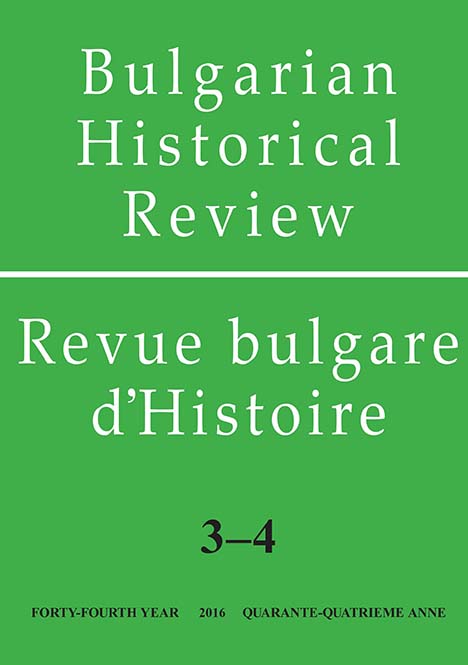
The process of studying the biography of the public figure, scientist and founder of Kharkov University V. N. Karazin was described in the article. The study design of the massif of publications was described. Historiographical images of V. N. Karazin which have been formed in Ukrainian, Bulgarian, Russian, Czech, British, American as well as the emigrant literature of the mid-19th – beginning of the 21st centuries were detected and characterized. Reasons for their construction and evolutionary trends were explored. The Life and Creative Work of Vasyl’ Karazin in the Historiographical Reflection. The process of studying the biography of the public figure, scientist and founder of Kharkov University V. N. Karazin was described in the article. The study design of the massif of publications was described. Historiographical images of V. N. Karazin which have been formed in Ukrainian, Bulgarian, Russian, Czech, British, American as well as the emigrant literature of the mid-19th – beginning of the 21st centuries were detected and characterized. Reasons for their construction and evolutionary trends were explored. The Life and Creative Work of Vasyl’ Karazin in the Historiographical Reflection. The process of studying the biography of the public figure, scientist and founder of Kharkov University V. N. Karazin was described in the article. The study design of the massif of publications was described. Historiographical images of V. N. Karazin which have been formed in Ukrainian, Bulgarian, Russian, Czech, British, American as well as the emigrant literature of the mid-19th – beginning of the 21st centuries were detected and characterized. Reasons for their construction and evolutionary trends were explored.
More...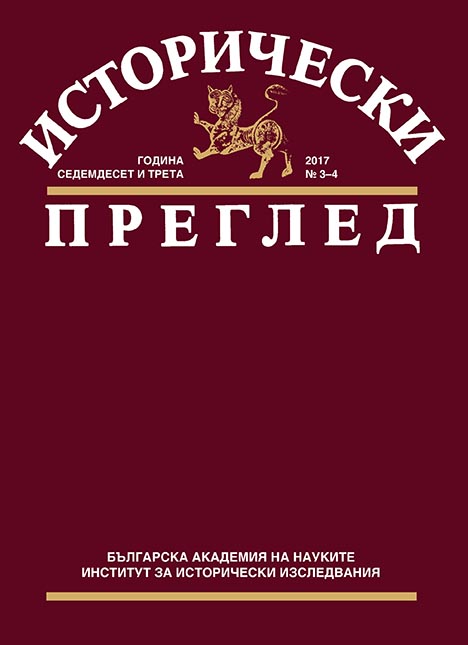
Registers of travel permits for Bulgarians, issued by the Ruse Municipality, stored in the Ruse State Archive, contain unpublished reports of alleged two short visits of Levski to Ruse in early September and mid-October 1869. These documents, despite the fragmentary information, contain invaluable information about not yet sufficiently studied aspects of the everyday life of the Bulgarian society during the Revival period, specific information about the genealogy research and reconstruction of the past regarding the intensity of trips of Bulgarians through Ruse and their ultimate goal. It is assumed that the Vasil Ivanov, registered on September 10, 1869, was Levski, who visited Ruse to meet a Polish emigrant, Rachkovsky (that is the name mentioned in the cited document, but probably it is Mr. Rovinski). The second visit is in the middle of October when Levski made an unsuccessful attempt to build a secret channel, Ruse – Giurgiu, to carry the revolutionary correspondence (the revolutionary channel Bucharest – Giurgiu – Ruse began functioning in the second half of 1871)
More...
This study is dedicated to one of the most critical periods in the life of Vassil Levsky. Based on survived records and documents as well as on the survey of the achievements of the medicine at that time an attempt is made to reveal his disease at the beginning of 1868 and the surgical intervention that followed. The critical evaluation of the scarce information points to the diagnosis of tuberculosis which caused chronic mesoadenitis combined with local abscess and a long lasting fistula was formed following the surgical manipulation. Appendicitis as well as actinomycosis is also discussed as possible alternatives.
More...
The article presents in original and translation an unpublished source, stored in the Istanbul Ottoman Archives, which refers to the early history of the BRCC. The documentary tells of two meetings of the Bulgarian Central Revolutionary Committee (BRCC) held in Bucharest late 1869 – early 1870 and provides valuable information about Vasil Levski’s participation in the meetings. The author of the report speaks of the revolutionary preparations of the Bulgarians in Bucharest and describes the meeting of the conspirators who discussed the idea of a revolt in the Bulgarian lands in the spring of 1870. The source characterizes Levski as “one of the most active and energetic agitators … very famous.”
More...
The present study investigates some aspects of the transformation of the late estate society in the Hungarian kingdom from a microhistorical perspective. The local conflicts around the 1842 muster of the burghers’ guard in the free royal town Košice appertained to the burghers’ duties in general: their mandatory service in the guard and their behaviour towards the council. The analysis of these events reveals how transforming social practices clash with the social order solidified by old customs and law. In general, this conflict sheds light on the changes of the contemporary conception as well as the social transformation of burghership as a category of the estate society right before the outbreak of the Hungarian Revolution of 1848.
More...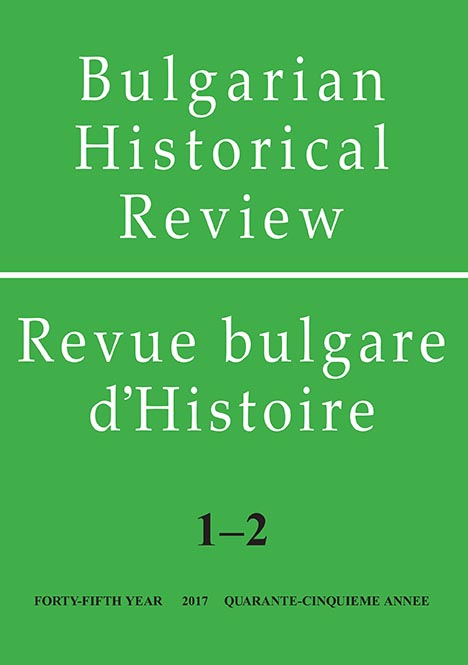
In this work based on primary sources, the author investigates the chronology of the appearance of the Bulgars and their movement around Europe. Historical facts show that the formation of the Volga Tatars as an ethnicity was in large part based on the cultural traditions of the Bulgars. In light of the information contained in the article, the Bulgars cannot be considered direct ancestors of the Chuvash people.
More...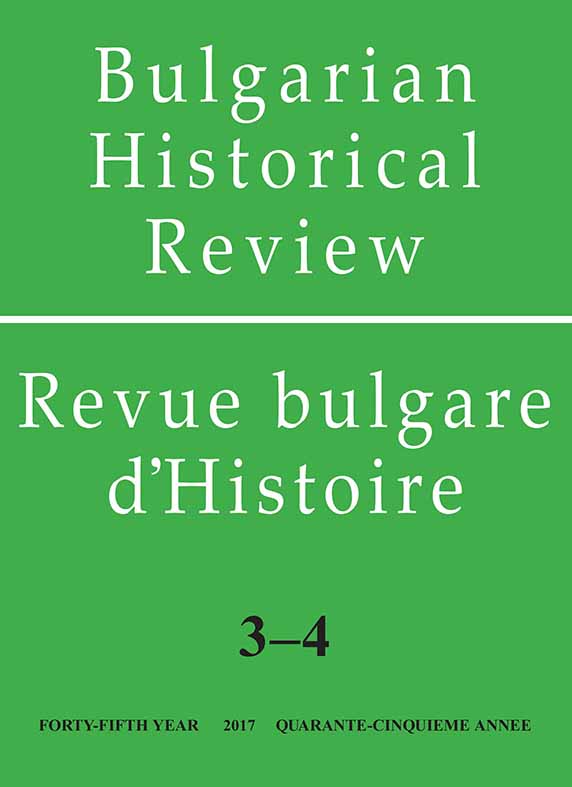
In the years after the Ilinden-Preobrazhenie uprising in 1903, complex and ambiguous relations developed between the IMARO and the Bulgarian governments. The nonintervention of Bulgaria in support of the rebels in Macedonia and the Adrianople Thrace led to serious tensions between the revolutionary organization and the state factors in the Principality. There was an intensive process of ideological organizational fragmentation in the IMARO itself, as part of its circles supported the idea of completely breaking off the ties with official Bulgaria. Although it publicly supported conduct of declarative distancing by the Bulgarian state, the Internal Organization continued to benefit from its financial and military assistance. During the period under review, the state subsidies for IMARO increased many times. The financing of the revolutionary organization by the Bulgarian governments suffered from many weaknesses, but it was of great importance for the preservation of its potential. Despite a number of contradictions and problems between state institutions and revolutionary activists, their common strategic goal – the liberation of Macedonia and Adrianople Thrace – determined their permanent co-operation.
More...
Based on published and newly discovered unpublished sources, as well as the existing historical research on the topic, the author reconstructs the church-national struggle in Sofia in the years after the end of the Crimean War (1856). The events in Sofia are discussed in the context of the national struggle for an independent Bulgarian church and in comparison with the similar activities in Plovdiv at the same time. Two main moments in the church movement in Sofia attract the attention and form the cores around which the source material is focused: the reaction in the city after the secession from the Patriarchate of Constantinople on 3 April 1860 in the Bulgarian church „St. Stefan“ in Constantinople – two months later Sofia’s Bulgarians also renounced the Patriarchate and reinforced this with relevant changes in the municipal self-government; the dramatic events in Sofia in 1861 when the citizens of Sofia defended their previously stated position on the church issue by refusing to accept the patriarchal bishop – Bulgarian Dorotheos.
More...
Professor Francesco Guida’s lecture, delivered in connection with his election as Doctor Honoris Causa of the Bulgarian Academy of Sciences, is a synthesis of the historical relations of Italy with the peoples and states in the Balkan Peninsula at the time of the struggles for national unification, for liberation and for political emancipation in the 19th and 20th century. The author examines successively Italy’s relations with Greece, with Serbia, with Bulgaria, Albania, Montenegro and Romania. The stages of Italian-Balkan relations are outlined: from the interaction in the struggle for national liberation to the political and diplomatic relations after the formation of national states and their inclusion in military and political blocs on the eve of World War I, shedding light on the Italian economic interest in the region as well.Guida also discusses the ideas of Garibaldi and Mazzini, which had a wide impact in the Balkans, too, at the time of national-liberation movements. In conclusion, he points out that the national revival movement of Italy (Risorgimento) and the national revival movements of the Balkan peoples had close and important ties. However, these ties should not be overestimated, because the ideas and the political figures of Italy did not exercise a greater influence on the political fate of the Balkan peoples than the Russian Pan-Slavism or than the political and diplomatic initiative of Austria-Hungary.
More...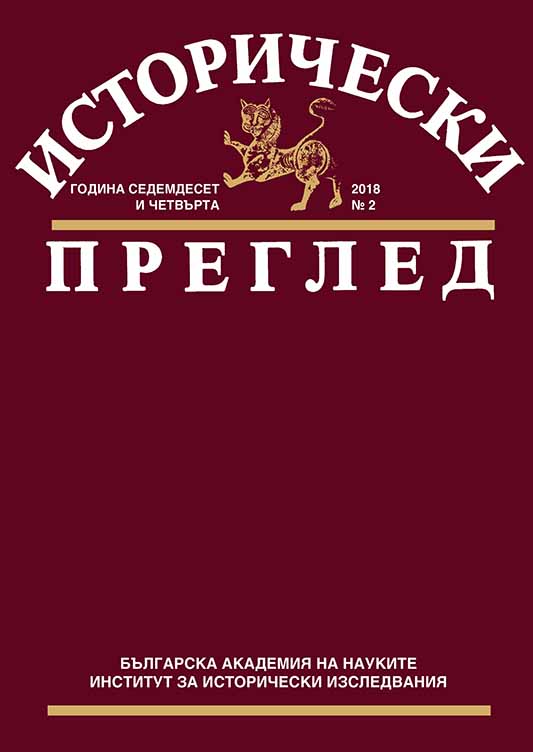
The archives of Bulgarian entrepreneurs from the National revival period contain valuable primary sources that allow us to investigate different issues. Such is the situation with the documentary collections of brothers Hristo, Nichola and Ivan Todorovi Pulievi, and their relatives Evlogi and Hristo Georgievi. One can find in those primary sources information concerning the division of the Bulgarian lands in the production of certain agricultural and craft goods; for little-known or unknown businessmen, for commercial practices, for certain events of regional and national scale. Some of the problems mentioned above have been the subject of scientific interest and research, but there are still “white fields” that deserve attention.
More...